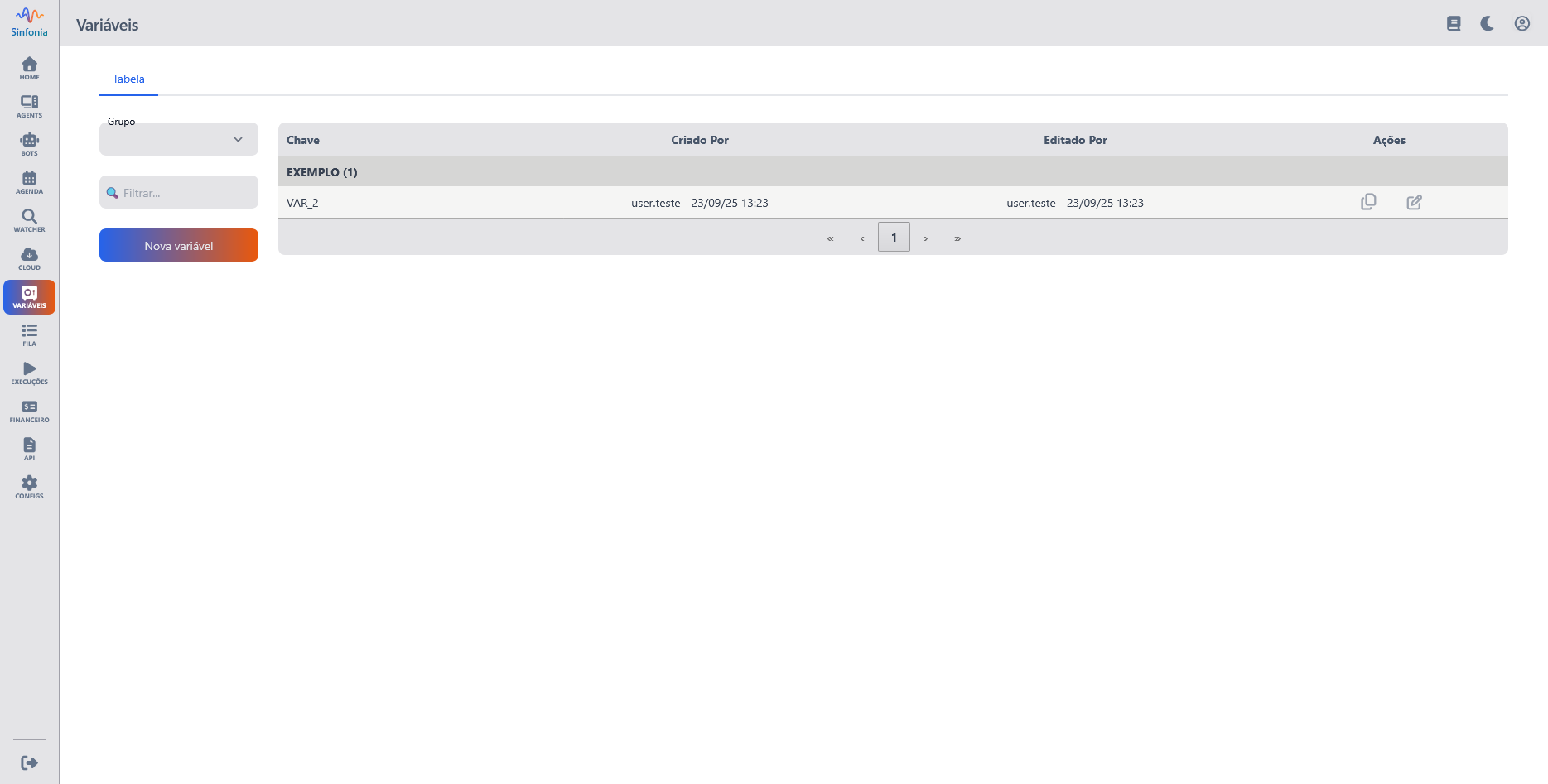Environment Variables
This screen allows configuring environment variables that will be used during automation execution. These variables can store sensitive information, such as authentication tokens, or data that needs to be reused in different executions.

Using Environment Variables
All variables registered in this interface will be sent as environment variables during automation execution. Here’s an example of how to access these variables:
import os
os.environ.get("key", None) Table Fields
| Field | Description |
|---|---|
| Key | Credential identifier |
| Created By | User who configured the credential |
| Edited By | User who edited the credential |
| Actions | Actions like edit, delete |
Actions
New Variable
To configure a new environment variable, click New variable.
| Field | Description |
|---|---|
| Key | Unique variable identifier. Example: TEST. |
| Value | Variable content. Can be a string, number, token, etc. |
| Group | Variable category or grouping. Useful for organization. |
Define who can view and edit the variable value:
Devs and Admins: Developers and administrators have access.Admins: Only administrators can view and edit.
⚠️ It’s recommended to restrict sensitive variables (like tokens) to administrators only.
Choose where the variable will be used:
Bot executions: The variable will be available during bot execution.Internal use (Git token, AWS token...): The variable will be used internally, usually for authentication or integration with external services.
✅ It’s possible to select both scopes if necessary.
Edit Variable
To edit a variable, click the icon in the Actions column.
Note
Follow the same instructions as registering a new variable.
Delete Variable
To remove a variable, click the icon in the Actions column.